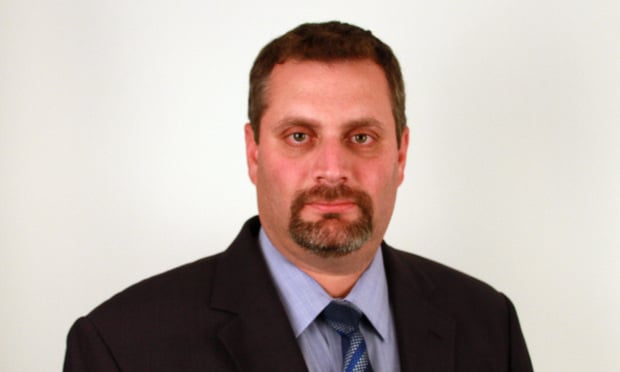David M Barshay

December 09, 2015 | New York Law Journal
Examination Under Oath and IME No-ShowIn his No-Fault Insurance Law Wrap-Up, David M. Barshay writes that generally, to prevail on a medical examination "no-show" defense, an insurer must prove both the mailing of its scheduling letters and the injured person's non-appearance. However, the Appellate Divisions are split on whether an insurer must raise the defense in a timely denial in order to preserve such defense.
By David M. Barshay
9 minute read

October 08, 2015 | New York Law Journal
Court of Appeals Addresses Plaintiff's Prima Facie BurdenIn his No-Fault Insurance Law Wrap-Up, David M. Barshay discusses 'Viviane Etienne Medical Care v. Country-Wide Ins. Co.', where the Court of Appeals held that the plaintiff, a medical provider office, demonstrated "prima facie entitlement to summary judgment by submitting evidence that payment of no-fault benefits are overdue, and proof of its claim, using the statutory billing form, was mailed to and received by the defendant insurer."
By David M. Barshay
10 minute read

October 07, 2015 | New York Law Journal
Court of Appeals Addresses Plaintiff's Prima Facie BurdenIn his No-Fault Insurance Law Wrap-Up, David M. Barshay discusses 'Viviane Etienne Medical Care v. Country-Wide Ins. Co.', where the Court of Appeals held that the plaintiff, a medical provider office, demonstrated "prima facie entitlement to summary judgment by submitting evidence that payment of no-fault benefits are overdue, and proof of its claim, using the statutory billing form, was mailed to and received by the defendant insurer."
By David M. Barshay
10 minute read

June 11, 2015 | New York Law Journal
Fees for Office-Based Surgical FacilitiesIn his No-Fault Insurance Law Wrap-Up, David M. Barshay reviews 'GEICO v. Avanguard Med. Group,' where the issue presented on appeal was whether a no-fault insurer was required to pay no-fault medical benefits to an office-based surgical facility not accredited under Public Health Law Article 28.
By David M. Barshay
10 minute read

June 10, 2015 | New York Law Journal
Fees for Office-Based Surgical FacilitiesIn his No-Fault Insurance Law Wrap-Up, David M. Barshay reviews 'GEICO v. Avanguard Med. Group,' where the issue presented on appeal was whether a no-fault insurer was required to pay no-fault medical benefits to an office-based surgical facility not accredited under Public Health Law Article 28.
By David M. Barshay
10 minute read

April 09, 2015 | New York Law Journal
State Enacts Regulation on Actions of Debt CollectorsIn his Debtor-Creditor Law Wrap-Up, David M. Barshay writes: in addition to following federal statutory requirements, debt collectors in New York City have been required to follow somewhat more stringent rules with respect to the collection of consumer debt. Now, the New York State Department of Financial Services has joined in.
By David M. Barshay
6 minute read

April 08, 2015 | New York Law Journal
State Enacts Regulation on Actions of Debt CollectorsIn his Debtor-Creditor Law Wrap-Up, David M. Barshay writes: in addition to following federal statutory requirements, debt collectors in New York City have been required to follow somewhat more stringent rules with respect to the collection of consumer debt. Now, the New York State Department of Financial Services has joined in.
By David M. Barshay
6 minute read

February 11, 2015 | New York Law Journal
Attorney Fee Provisions in No-Fault Regulations UpdatedIn his No-Fault Insurance Law Wrap-Up, David M. Barshay discusses the Department of Financial Services' amendment of the attorney fee provisions of the No-Fault Regulations, which may make prosecution of files on behalf of providers that submit larger claims somewhat more palatable, but will likely have a devastating effect on small providers.
By David M. Barshay
11 minute read

February 10, 2015 | New York Law Journal
Attorney Fee Provisions in No-Fault Regulations UpdatedIn his No-Fault Insurance Law Wrap-Up, David M. Barshay discusses the Department of Financial Services' amendment of the attorney fee provisions of the No-Fault Regulations, which may make prosecution of files on behalf of providers that submit larger claims somewhat more palatable, but will likely have a devastating effect on small providers.
By David M. Barshay
11 minute read

December 26, 2014 | New York Law Journal
Collateral Estoppel Effect of a Declaratory Judgment ActionIn his No Fault Insurance Law Wrap-Up, David M. Barshay writes: In the context of no-fault actions, the doctrine of collateral estoppel is usually raised with respect to a declaratory action or other such action in which a determination is made affecting the entire claim, and the insurer obtains a judgment relieving it from paying a particular claim.
By David M. Barshay
12 minute read
Trending Stories
- 1Judge Denies Sean Combs Third Bail Bid, Citing Community Safety
- 2Republican FTC Commissioner: 'The Time for Rulemaking by the Biden-Harris FTC Is Over'
- 3NY Appellate Panel Cites Student's Disciplinary History While Sending Negligence Claim Against School District to Trial
- 4A Meta DIG and Its Nvidia Implications
- 5Deception or Coercion? California Supreme Court Grants Review in Jailhouse Confession Case
More from ALM
- Legal Speak at General Counsel Conference East 2024: Match Group's Katie Dugan & Herrick's Carol Goodman 1 minute read
- Legal Speak at General Counsel Conference East 2024: Eric Wall, Executive VP, Syllo 1 minute read
- Legal Speak at General Counsel Conference East 2024: Virginia Griffith, Director of Business Development at OutsideGC 1 minute read



